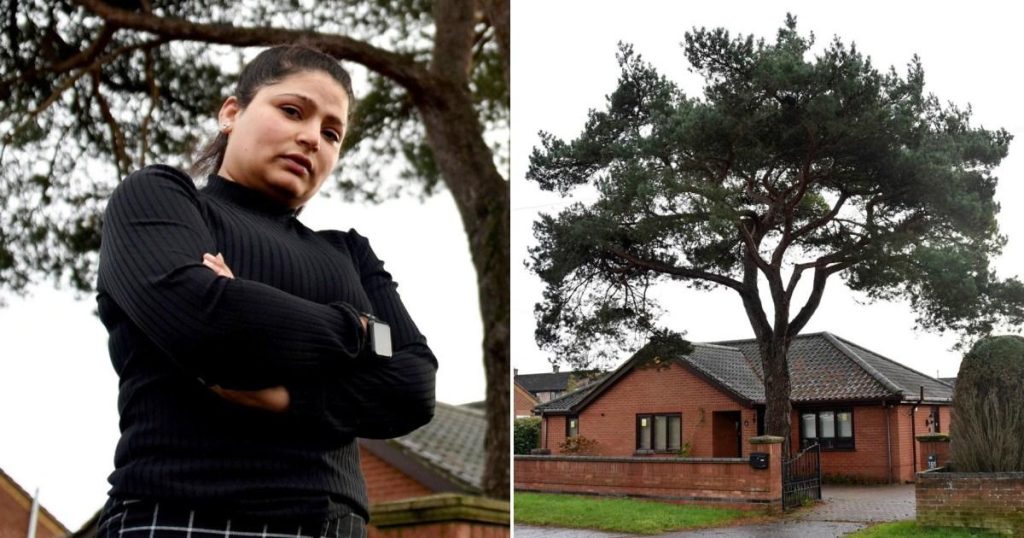Rachna Anderson, a 41-year-old homeowner in Easton, Norwich, finds herself in a distressing predicament. She believes she has developed a severe allergy to a Scots pine tree located in her front garden, an allergy that has dramatically impacted her quality of life. The allergy manifests in excruciating burning sensations, redness, and swelling on her face, making her apprehensive about even returning home. Her symptoms have progressively worsened over the past two years, despite undergoing extensive medical testing and treatments, including tests for food allergies and a skin biopsy. Doctors have been unable to pinpoint any other allergens that could be triggering her reactions, leading Rachna to believe the Scots pine is the culprit. This belief is further reinforced by the fact that her symptoms subside within hours of leaving her home, whether she travels to different cities or countries.
The crux of the problem lies in the legal protection afforded to the tree. The Scots pine is subject to a Tree Preservation Order (TPO), meaning it cannot be felled without permission from the local council. Rachna has submitted a formal planning application to South Norfolk Council requesting permission to remove the tree, but she faces an uphill battle. Council officials have indicated that such requests are rarely granted, leaving Rachna in a state of limbo. She feels trapped and frustrated by the lack of support from the council, especially given the severity of her symptoms, which have required two anaphylactic emergency interventions and multiple courses of steroids. She believes the council should either reimburse her rent or offer alternative accommodation if her application is denied.
Rachna’s situation is further complicated by the significant investment she and her family have made in their home since moving in 2022. They have spent over £30,000 on upgrades, including a new driveway and solar panels. The prospect of having to move due to a tree-related allergy is both emotionally and financially draining. She expresses a strong desire to remain in her home but acknowledges that her health must take precedence. The constant fear of experiencing another allergic reaction has severely restricted her social life, leaving her feeling isolated and anxious.
The South Norfolk Council has acknowledged Rachna’s concerns and confirmed that they are aware of her suspected allergy to the tree. They have stated that they will postpone a decision on her application until the results of further investigations into her allergy are available. However, this delay offers little solace to Rachna, who continues to suffer daily. She feels her pleas for help have been disregarded despite providing substantial evidence, including medical records and photographs, documenting her condition. The lack of immediate action from the council leaves her feeling abandoned and desperate for a resolution.
Adding to the complexity of the situation is the fact that Scots pine trees are known to produce pollen and volatile organic compounds that can trigger allergic reactions in susceptible individuals. While not as common as allergies to other tree species, such as birch or oak, reactions to Scots pine can range from mild skin irritation to more severe respiratory symptoms. The unique combination of chemicals released by the Scots pine, coupled with individual sensitivities, can make it difficult to pinpoint the exact cause of the allergic reaction and further complicates the process of obtaining permission for tree removal.
In a bid to strengthen her case, Rachna has enlisted the support of her local Member of Parliament, Ben Goldsborough, who has offered to advocate on her behalf before the council’s planning committee. This intervention offers a glimmer of hope, but the outcome remains uncertain. If her application is ultimately denied, Rachna has even considered emigrating to Australia as a last resort, a drastic measure that underscores the severity of her situation. She emphasizes her desire to reclaim her life and live free from the constant fear and discomfort caused by her suspected allergy. The future remains uncertain for Rachna as she awaits the council’s decision, caught between the need to protect her health and the desire to remain in her home.











